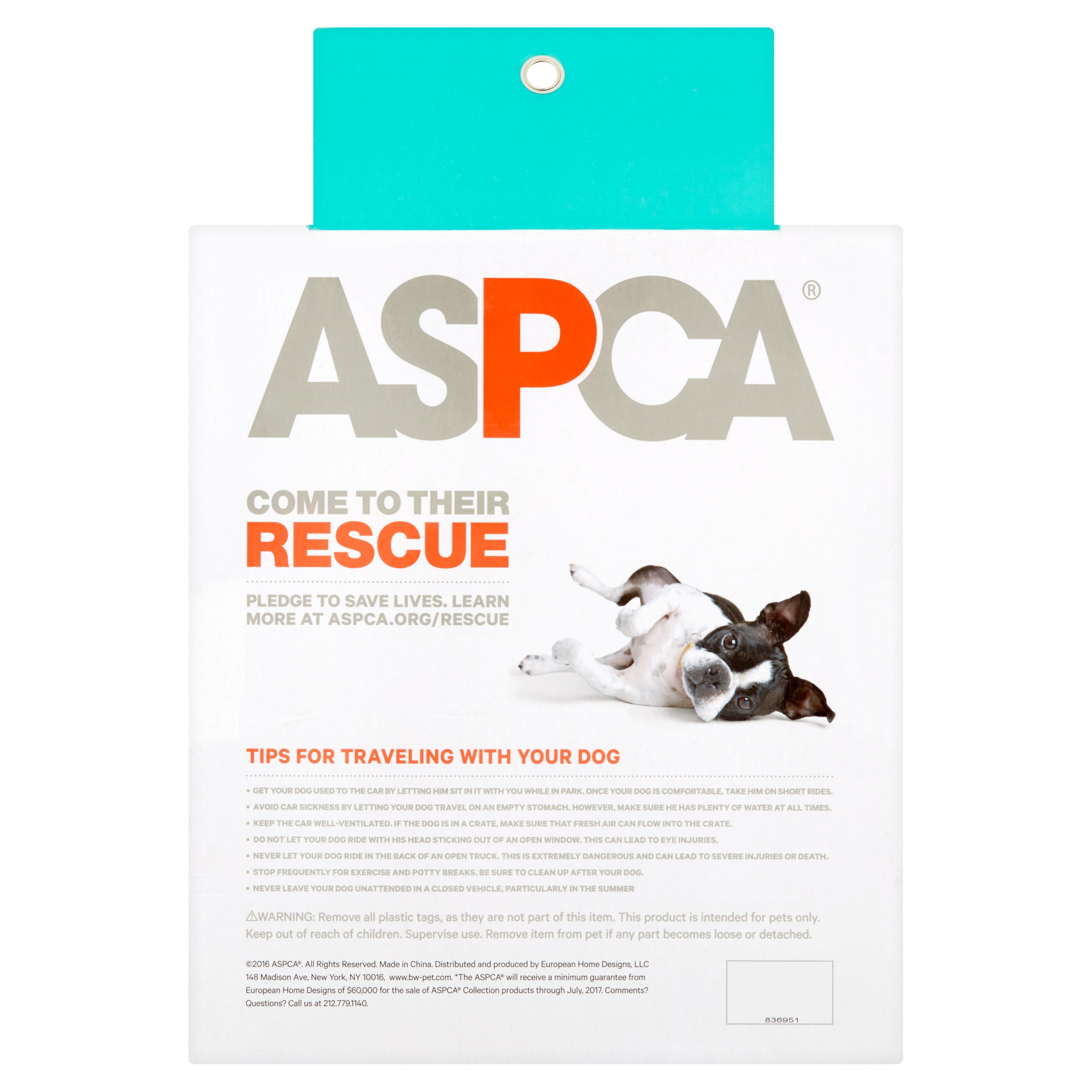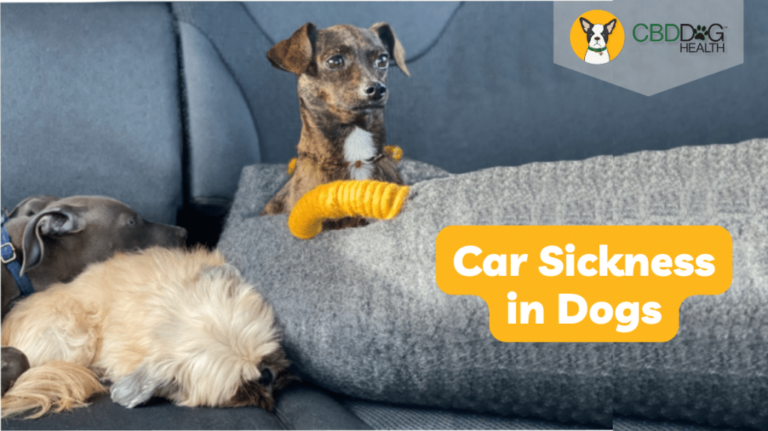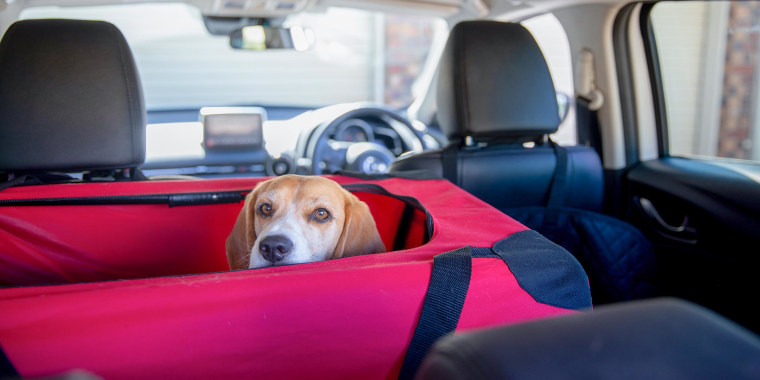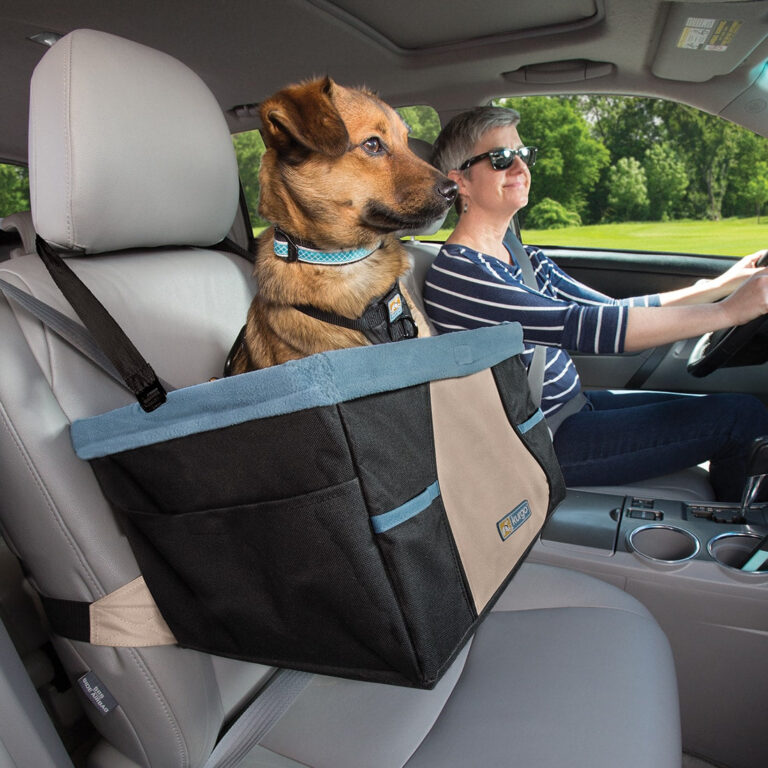Do Some Dogs Never Get Over Car Sickness? Unveiling Myths
Yes, some dogs never get over car sickness. This issue can persist despite various attempts to alleviate it.
Car sickness in dogs is a common issue that many pet owners face. This condition can cause distress for both the dog and the owner. Understanding the root causes of car sickness, such as anxiety or inner ear problems, can help in managing the symptoms.
Various strategies, including gradual desensitization and anti-nausea medications, may provide relief. Consulting a veterinarian is crucial for a proper diagnosis and treatment plan. Regular short trips with positive reinforcement can also help in reducing a dog’s anxiety over time. Ensuring your dog is comfortable and secure during car rides can make a significant difference in their experience.
Introduction To Canine Car Sickness
Car sickness is a common issue in dogs. It can make travel stressful for both pets and their owners. Understanding the causes and symptoms can help manage this condition better. Some dogs might never completely get over car sickness, but there are ways to reduce its impact.
Symptoms And Signs
Dogs show various signs of car sickness. Recognizing these symptoms early can help in managing them. Here are some common signs:
- Drooling: Excessive saliva production is a common sign.
- Whining or Crying: Dogs may vocalize their discomfort.
- Lethargy: They might seem unusually tired or inactive.
- Vomiting: This is a clear indication of car sickness.
- Yawning: Frequent yawning can be a stress response.
- Restlessness: Dogs may pace or shift positions often.
Why Some Dogs Experience Car Sickness
Not all dogs experience car sickness the same way. Several factors contribute to this condition. Understanding these can help in finding solutions.
| Factor | Description |
|---|---|
| Age | Young puppies are more prone due to their developing inner ear structures. |
| Anxiety | Stress and anxiety can trigger car sickness in dogs. |
| Motion | Some dogs are sensitive to the motion of the car. |
| Associations | Bad experiences in the car can create negative associations. |
Recognizing these factors can help in managing car sickness better. By addressing these issues, travel can become more pleasant for your dog.

Credit: www.walmart.com
Debunking Common Myths
Many pet owners believe certain myths about dogs and car sickness. These myths can lead to confusion and frustration. Let’s uncover the truth behind these common misconceptions.
Only Puppies Get Car Sick
A popular myth is that only puppies get car sick. While puppies are more prone to car sickness, adult dogs can also suffer from it. Puppies often experience car sickness due to their inner ears not being fully developed. This makes them more sensitive to motion. But, adult dogs can also experience car sickness due to anxiety or stress.
All Dogs Outgrow Car Sickness
Another common belief is that all dogs outgrow car sickness. This is not always true. Some dogs may never outgrow it. While many puppies get better with age, some dogs continue to experience car sickness throughout their lives.
Here are a few reasons why some dogs do not outgrow car sickness:
- Persistent anxiety or stress
- Underlying medical conditions
- Negative past experiences with car rides
Understanding these myths helps in providing better care for your furry friends. Knowing the truth allows you to take appropriate steps to help them feel more comfortable during car rides.
The Science Behind Motion Sickness In Dogs
Many dogs experience car sickness, making travel difficult. Understanding the science behind this can help. It involves the inner ear, balance, and anxiety.
Inner Ear And Balance
The inner ear plays a key role in balance. Dogs have sensitive inner ears. These detect movement and send signals to the brain. Quick or unfamiliar movements can confuse this system. This confusion leads to nausea and dizziness.
Young puppies often suffer more from motion sickness. Their inner ear structures are still developing. As they grow, many outgrow these symptoms. But some dogs never adjust. They may continue to feel ill in moving vehicles.
Stress Factors And Anxiety
Stress and anxiety also contribute to car sickness in dogs. Many dogs feel stressed during car rides. They associate the car with negative experiences like vet visits.
Signs of anxiety include drooling, whining, and restlessness. These stress responses can worsen motion sickness symptoms. Calming measures can help, such as using a familiar blanket or toy.
| Factors | Impact |
|---|---|
| Inner Ear Development | Young puppies are more prone to car sickness. |
| Stress and Anxiety | Increases symptoms of car sickness. |
Understanding these factors helps in managing your dog’s car sickness. Patience and training can make car rides more pleasant for your furry friend.
Factors Contributing To Persistent Car Sickness
Car sickness in dogs can be a persistent issue. Some dogs never seem to get over it. Various factors can contribute to this problem. Understanding these factors can help in managing the condition better.
Genetic Predisposition
Some dogs are genetically predisposed to car sickness. Breeds like Greyhounds and Whippets often suffer more.
Here are some key points about genetic predisposition:
- Breed-Specific Traits: Certain breeds are more prone to motion sickness.
- Inherited Sensitivity: Sensitivity to motion can be passed from parent to puppy.
- Inner Ear Development: Issues with inner ear balance can be genetic.
These genetic factors are often unavoidable. But, knowing them helps in understanding why some dogs never get over car sickness.
Negative Associations With Travel
Negative experiences during travel can worsen car sickness. A dog’s first car ride can set the tone for future trips.
Here are some common negative associations:
- Previous Bad Experiences: A rough or bumpy ride can scare a dog.
- Stressful Destinations: Trips to the vet can create anxiety.
- Uncomfortable Conditions: Loud noises or cramped spaces can lead to stress.
Dogs remember these experiences. They can associate car rides with discomfort or fear.
Understanding these factors helps in identifying why some dogs struggle with car sickness. This knowledge can guide efforts to make travel more comfortable for your furry friend.
Training Techniques To Alleviate Symptoms
Many dog owners struggle with their pets experiencing car sickness. It can be challenging and distressing for both the dog and the owner. But there are effective training techniques to alleviate these symptoms. By using methods like desensitization and positive reinforcement, you can help your dog feel more comfortable during car rides.
Desensitization Methods
Desensitization involves gradually exposing your dog to car rides. Start by letting your dog sit in the car while it is stationary. Allow them to explore the space and get comfortable. Gradually increase the exposure by turning on the engine without moving the car. Once your dog feels at ease, take short trips around the block. This helps your dog associate the car with positive experiences.
Use treats and toys to create a pleasant environment. Play with your dog in the car and reward them for calm behavior. Consistency is key, so practice these steps regularly.
Positive Reinforcement
Positive reinforcement is a powerful tool in training. Reward your dog with treats, praise, or toys when they show calm behavior in the car. This encourages your dog to repeat that behavior. Always carry a supply of your dog’s favorite treats.
During car rides, keep your dog secure in a crate or with a seatbelt harness. This ensures their safety and reduces anxiety. Offer treats and praise frequently to build a positive association with the car.
If your dog shows signs of car sickness, stop the car and allow them to relax. Give them water and a treat once they calm down. Gradually increase the duration of car trips as your dog becomes more comfortable.
Medical Interventions And Remedies
Car sickness in dogs can be a persistent issue. Some dogs never outgrow this condition. Fortunately, there are various medical interventions and remedies to help manage or alleviate their symptoms.
Prescription Medications
Veterinarians often prescribe medications for severe cases of car sickness. These medications can significantly reduce symptoms.
- Cerenia: This is a commonly prescribed anti-nausea medication. It is safe and effective.
- Dramamine: This over-the-counter medication can also be used. However, always consult a vet before administering it.
- Benadryl: Sometimes used for its sedative effects. It can help calm anxious dogs.
Natural Supplements And Diet
Natural remedies can also help with car sickness. Many pet owners prefer these options.
- Ginger: Known for its anti-nausea properties. You can find it in pill or treat form.
- Peppermint: This can soothe the stomach. Peppermint oil or treats can be effective.
Dietary changes can also make a difference. Feed your dog a light meal a few hours before travel. This can help prevent an upset stomach.
Always consult your vet before starting any new treatment. They can provide the best advice for your dog’s specific needs.
Preparing For A Car Ride
Many dogs experience car sickness, and some may never fully get over it. Preparing properly can make the ride smoother for both you and your furry friend. Follow these tips to ensure a comfortable journey for your dog.
Creating A Comfortable Environment
First, make sure the car is a welcoming place for your dog. Place a familiar blanket or their favorite toy in the car. This helps them feel secure and less anxious.
Second, use a dog harness or a crate. Both keep your dog safe and reduce motion sickness. A harness keeps them steady, while a crate offers a confined space that feels secure.
Third, control the temperature in the car. Dogs can get overheated or too cold, which can worsen their sickness. Keep the car at a comfortable temperature.
Timing Of Meals And Hydration
Plan your dog’s meals carefully before a car ride. Feed them a light meal three to four hours before the trip. A full stomach can make motion sickness worse.
Keep your dog hydrated, but don’t let them drink too much water before the ride. Too much liquid can make them feel nauseous.
During the trip, offer small amounts of water at regular intervals. This keeps them hydrated without upsetting their stomach.
| Preparation Tips | Details |
|---|---|
| Comfort Items | Use familiar blankets or toys. |
| Safety Gear | Use a harness or crate. |
| Temperature Control | Keep the car at a comfy temperature. |
| Meal Timing | Feed light meals 3-4 hours before. |
| Hydration | Offer small water amounts regularly. |

Credit: www.akc.org
When To Seek Professional Help
Car sickness in dogs can be a challenging issue. Some dogs may never get over it on their own. Knowing when to seek professional help is crucial for your dog’s well-being.
Consulting A Veterinarian
If your dog constantly gets sick during car rides, it might be time to consult a veterinarian. Vets can offer medications to ease your dog’s symptoms. They can also rule out other health issues.
Here are some signs you should visit a vet:
- Frequent vomiting during car rides
- Excessive drooling
- Anxiety or restlessness in the car
- Refusal to get into the car
A vet may prescribe anti-nausea medications or suggest natural remedies. Always follow your vet’s instructions for the best outcome.
Behavioral Specialist Intervention
If medication doesn’t help, you might need a behavioral specialist. These experts can train your dog to feel comfortable in the car. Training might involve desensitization techniques and positive reinforcement.
Behavioral specialists can help with:
- Gradual exposure to car rides
- Creating a calm environment in the car
- Rewarding good behavior during car trips
Training can take time, but it can be very effective. Patience and consistency are key. With professional help, your dog can learn to enjoy car rides.
Personal Stories Of Success
Car sickness in dogs can be a challenging issue for many pet owners. Some dogs never seem to get over it. However, numerous personal stories show hope and success. Below, we share inspiring stories from dog owners who have managed to help their furry friends overcome car sickness.
Case Studies
Bella, a 3-year-old Labrador, used to vomit every time she got into a car. Her owner, Mark, tried various solutions. After consulting with a vet, they decided to use ginger supplements. Within a month, Bella’s car sickness improved by 80%.
Max, a 2-year-old Beagle, had severe anxiety and car sickness. His owner, Sarah, introduced Max to short, frequent car rides. She also played calming music. Over six weeks, Max became more comfortable, and his car sickness reduced significantly.
Owner Testimonials
John shares, “Rocky used to drool excessively during car rides. I tried special dog car seats and it made a huge difference. Now, Rocky enjoys our trips!”
Emily writes, “Daisy would always refuse to get into the car. I started using dog-friendly travel apps and interactive toys. These tools kept Daisy distracted and calm. She no longer dreads car rides.”
Credit: www.thesprucepets.com
Conclusion: Balancing Expectations And Reality
Balancing expectations and reality can be tough. Some dogs never get over car sickness. This reality can be hard to accept. But, understanding and patience can make things better. It is important to find ways to help your dog. This can improve their travel experience.
Accepting Your Dog’s Limitations
Every dog is different. Some dogs may never enjoy car rides. Accepting this fact is crucial. It helps to reduce frustration. Recognize your dog’s limits and work within them. This can create a more pleasant experience for both of you.
List of Tips to Accept Your Dog’s Limitations:
- Observe your dog’s behavior in the car.
- Note any signs of discomfort or anxiety.
- Understand that it’s okay if your dog struggles with car rides.
- Consult with your vet for advice and support.
Celebrating Small Victories
Small victories matter. Celebrate them. Did your dog handle a short trip well? That’s a win! Recognize and reward these moments. This can build positive associations with car travel.
Table of Small Victories to Celebrate:
| Victory | Reward |
|---|---|
| Sitting calmly in the car | Give a favorite treat |
| Not vomiting during a short trip | Extra playtime |
| Entering the car willingly | Verbal praise and petting |
Remember to be patient. Each dog progresses at their own pace. Every small step forward is a reason to celebrate.
Frequently Asked Questions
Will My Dog Ever Stop Getting Car Sick?
Yes, many dogs outgrow car sickness as they age. Training and gradual exposure can help. Consult your vet for advice.
Can Dogs Get Over Travel Sickness?
Yes, dogs can get over travel sickness. Gradual exposure to car rides and using anti-nausea medications can help. Consult your vet.
Is Car Sickness Genetic In Dogs?
Car sickness in dogs is not directly genetic. It often results from anxiety or motion sickness. Training and medication can help.
What Happens If A Dog Keeps Being Sick?
If a dog keeps being sick, consult a vet immediately. Persistent vomiting can indicate serious health issues. Early diagnosis ensures better treatment.
Conclusion
Helping your dog overcome car sickness can be challenging. Patience and consistency are key. With proper care and attention, many dogs improve. Always consult your vet for the best solutions. Safe travels with your furry friend!
- Can I Get in a Taxi Without a Car Seat? - January 26, 2025
- Can I Get Chlamydia From a Toilet Seat? - January 26, 2025
- Can I Get an Uber With a Car Seat? - January 26, 2025






